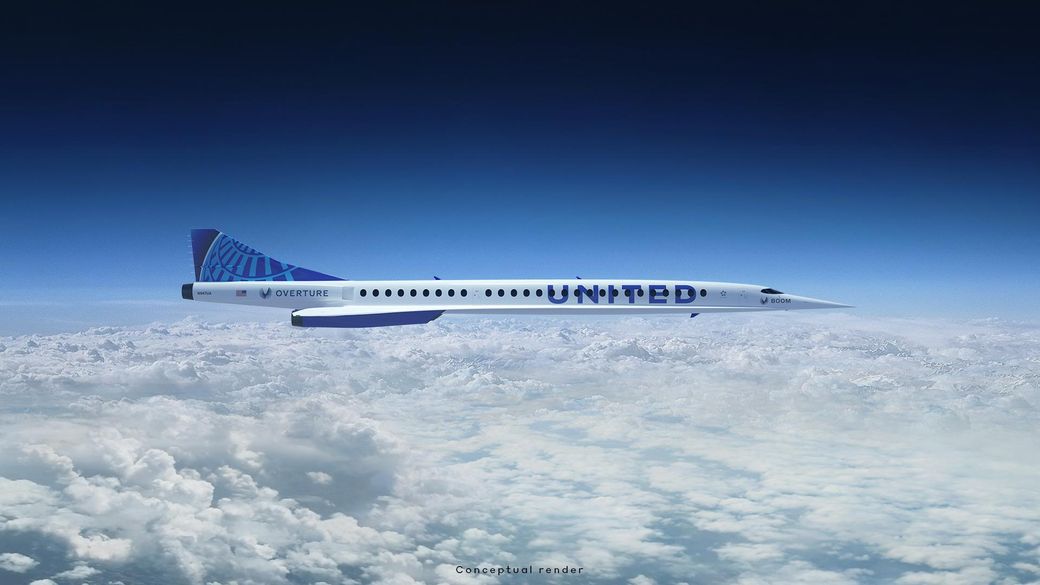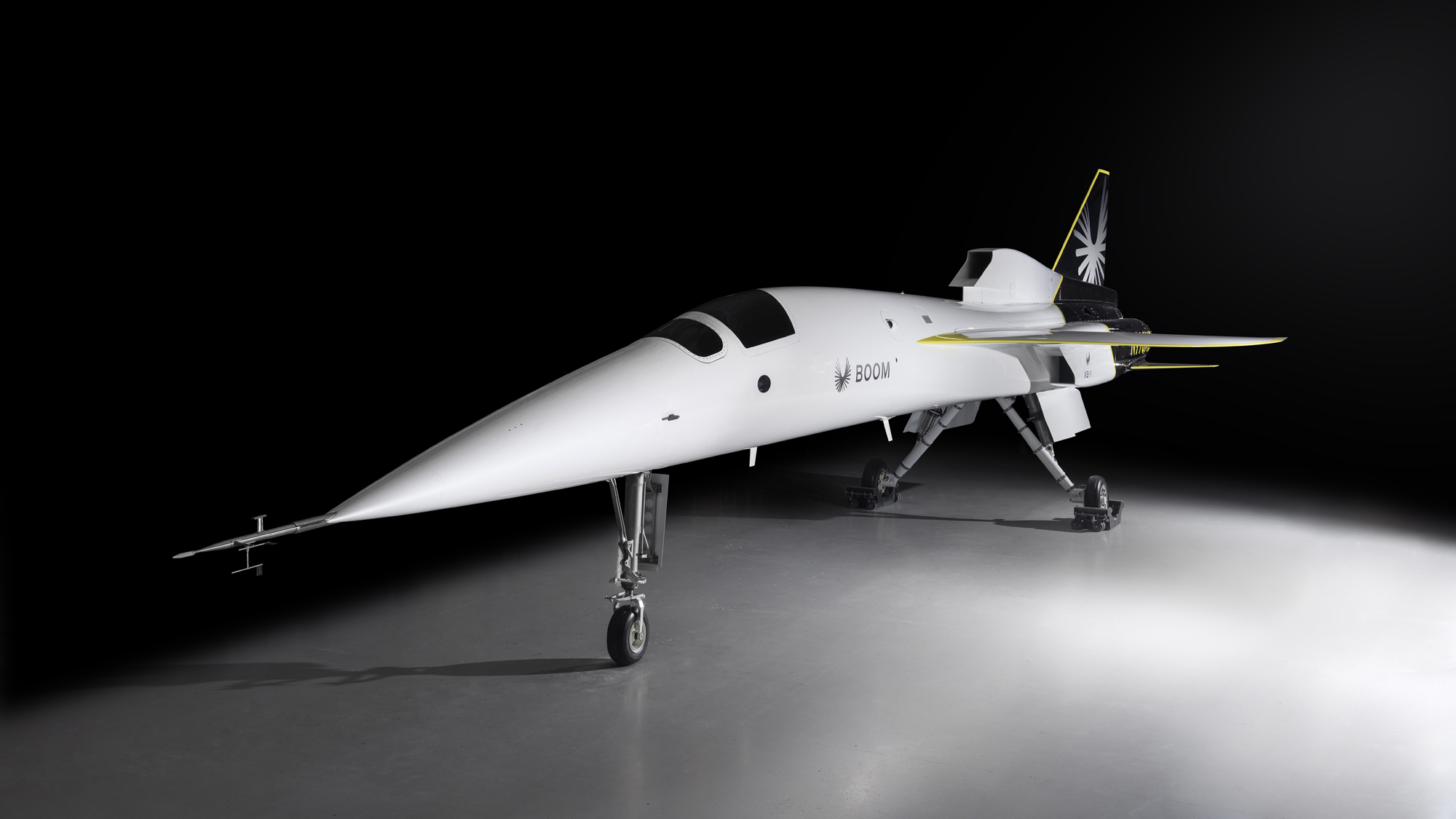United Airlines wants planes from Boom Supersonic to fly passengers faster than the speed of sound

United Airlines plans to add faster speeds to its passenger airliner fleet within the decade, after agreeing in principle to buy aircraft from Boom Supersonic.
Earlier this month, the American air service giant said it has entered a commercial agreement with Boom to buy 15 "Overture" aircraft capable of flying faster than the speed of sound, as long as the new aircraft meet safety, operating and environmental sustainability requirements, according to United. Another 35 aircraft might be purchased, providing the first tranche goes to plan. No financial details were disclosed in a press release.
"This is an order, but to call it a firm order is inaccurate," Mike Leskinen, United's head of corporate development, told The Air Current. While money has exchanged bank accounts, Leskinen said the agreement is tied to certain milestones. "They [Boom] have to deliver, and we've got a number of years to deliver on that. We're going to work closely with them to help."
Related: Photos: Amazing X-planes from the X-1 to XV-15
Boom has not yet tested a supersonic jet in flight, although in October 2020 the company promised it would fly its test XB-1 jet sometime in 2021. Once developed, Overture will send passengers from Paris to Montreal in only 3 hours and 45 minutes, about half the current metric of 7 hours and 15 minutes, according to Boom.
The net-zero aircraft will carry 65 to 88 passengers and cruise at 1.7 times the speed of sound at 60,000 feet (roughly 18.2 kilometers) in altitude. United says Overture will be ready for flight in 2026 and for carrying passengers in 2029.
United and Boom aren't the only ones interested in commercial supersonic flight. NASA is building its experimental X-59 Quiet Supersonic Transport jet to test technology for quieter sonic booms. Earlier this year, the space tourism company Virgin Galactic unveiled plans for a new Mach 3 aircraft for supersonic passenger travel.
Breaking space news, the latest updates on rocket launches, skywatching events and more!
Related: Supersonic! The 10 Fastest Military Airplanes
United's potential routes for Overture could include Newark, N.J. to London; Newark to Frankfurt, Germany; or San Francisco to Tokyo, the company said. The new Overture fleet will also include in-seat entertainment screens and "ample personal space." Potential per-seat pricing for passengers was not disclosed.
Boom has acknowledged industry skepticism about the viability of supersonic flight. Famously, the Concorde aircraft was never able to find a firm market foothold despite delivering fast service between certain destinations in Europe and the United States.
The British-French supersonic passenger airliner was in operation between 1969 and 2003. The fleet was permanently grounded three years after Air France Flight 4590 crashed in 2000, killing all passengers and crew. Another factor in Concorde's demise was global air traffic demand suffering in the wake of the Sept. 11, 2001 airborne terrorist attacks in New York City and Washington, D.C.
"In aerospace, we have a sad history of 'glory' projects driven by national prestige politics," Blake Scholl, Boom founder and CEO, wrote on LinkedIn in August 2020, noting that Concorde was not economically viable and was too noisy to be used at most airports, among other issues.
"Learning from Concorde and building upon its foundation, we defined three core principles to guide every strategic decision and facet of the organization — speed, safety and sustainability," Scholl added. "For us, these principles enable supersonic flight that is affordable for passengers, profitable for airlines and capable of reaching economies of scale with tens of millions of passengers."
Both Boom and United said the Overture fleet will be environmentally sustainable, with the aircraft fleet using 100% sustainable aviation fuel, a type of fuel made from sustainable feedstocks, such as cooking oil or forestry waste, British Petroleum said. That said, supersonic aircraft more generally have met environmental criticism due to burning more fuel per passenger than slower aircraft, according to Reuters.
Follow Elizabeth Howell on Twitter @howellspace. Follow us on Twitter @Spacedotcom and on Facebook.

Elizabeth Howell (she/her), Ph.D., was a staff writer in the spaceflight channel between 2022 and 2024 specializing in Canadian space news. She was contributing writer for Space.com for 10 years from 2012 to 2024. Elizabeth's reporting includes multiple exclusives with the White House, leading world coverage about a lost-and-found space tomato on the International Space Station, witnessing five human spaceflight launches on two continents, flying parabolic, working inside a spacesuit, and participating in a simulated Mars mission. Her latest book, "Why Am I Taller?" (ECW Press, 2022) is co-written with astronaut Dave Williams.

